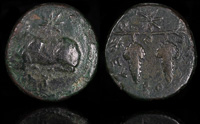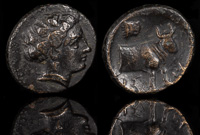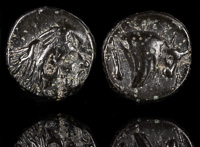Euboia
Glaukos, a boxer from Karystos, wins in the Olympic Games.
Karystos destroyed by the Persians.
August 7
September 26
Aegina plays a significant role in the Greek naval victory against the Persian Empire in the Battle of Salamis. Byblos, Arados, Tyre, Halikarnassos under Artemisia, Kos, and Sidon support Darius. Chalkis and Kythnos support the Greek effort. Alexander I serves as a peace negotiator on behalf of the Persians.
Karystos comes under Macedonian control.
Kassander besieges Histaia, but is forced to leave upon the approach of Ptolemy, a general of Antigonos Monophthalmos.
Pleistarchos serves as garrison commander in Chalkis.
The head of the Macedonian garrison in Histaia betrays the city to the Romans.
Romans assault and take Histaia.
Karystos is taken by the Romans, and due to its marble quarries becomes an important center.
Chalkis used as a base by Antiochos III for invading Greece.
Chalkis is used by Mithridates VI for invading Greece.
Pliny the Elder mentions that Histaia no longer exists.



